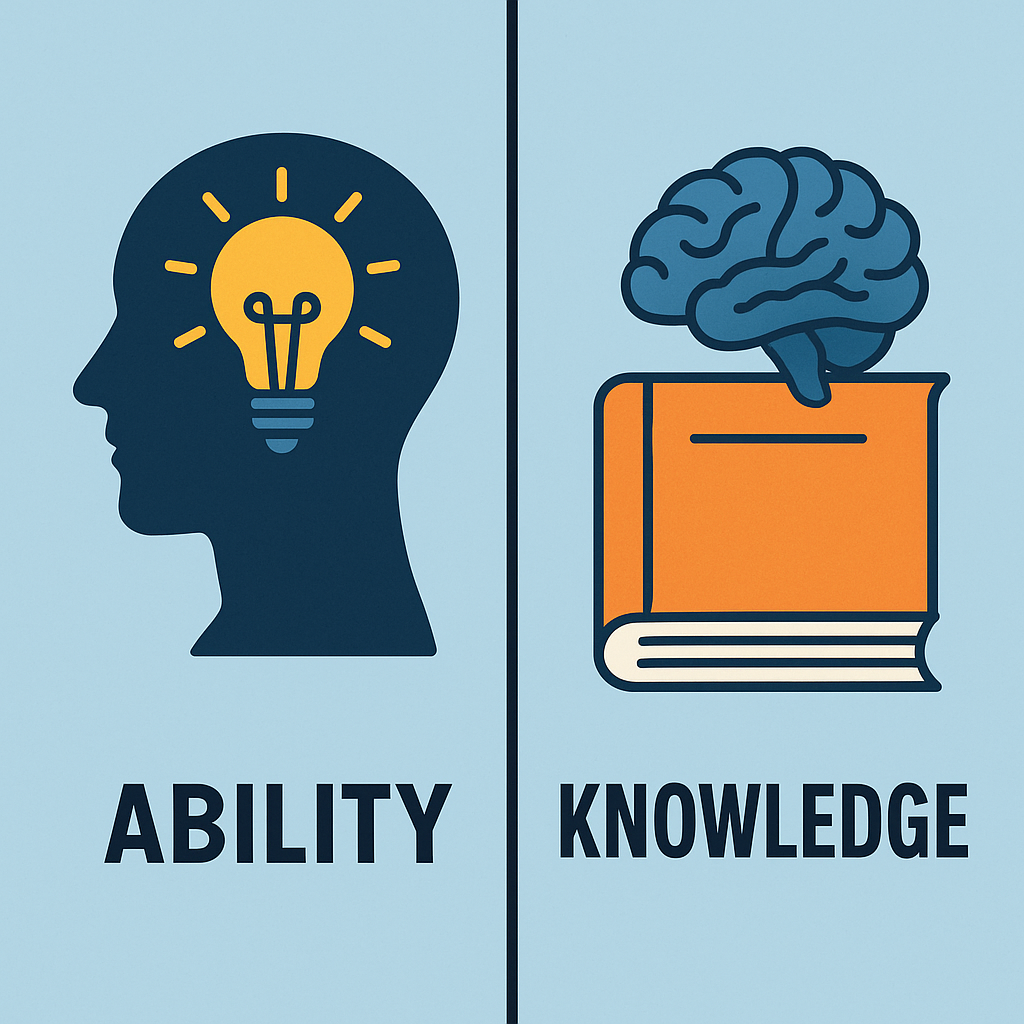Cybersecurity Interview Tips: Why Ability Matters More Than Knowledge
Knowing how to approach interviews can be tricky. Should you focus on past experience? Education? Certifications? Weak points? While all of these can play a role, the most important thing you should highlight in any interview is your ability to perform in the role.
As a longtime hiring manager in cybersecurity and tech, I often highlight one key distinction: knowledge vs. ability. I’m far more interested in a candidate’s ability to solve problems, learn quickly, and grow into the role than in what they already know.
The difference between ability and knowledge—one is fixed, the other fuels growth.
What’s the Difference?
Knowledge is static. It’s past-focused—what you’ve learned, what you’ve memorized, what you’ve done before.
Ability is dynamic. It’s forward-facing—your capacity to learn, adapt, solve, and grow.
Highlighting ability is especially important in fields like cybersecurity, where the problems of yesterday are rarely the problems of today. And tomorrow? You’ll be solving things we haven’t even seen yet.
Expecting candidates to show up with 10+ years of experience securing AI-enabled products isn’t realistic—unless you’re ready to back up a truck full of cash. That’s why I care more about someone who may not have done the exact thing before but is clearly ready to rise to the occasion.
Let’s Put It This Way…
If you were on a date and trying to get a feel for whether the person in front of you would be a great partner, who would you trust more?
Person A – Someone who’s been married before, can quote the latest dating podcasts, and has strong opinions on how love has changed over time.
Person B – Someone who may have had one serious relationship, is actively learning about themselves, and is open about what they want to build in their next relationship.
Hopefully, you picked Person B—the one demonstrating the ability to show up, grow, and connect in a meaningful way.
Hiring for knowledge is like dating someone who’s read every book on relationships but never asks how your day went.
Sure, they can quote stats and break down attachment styles, but can they actually build a relationship?
In both love and work, it’s not about what you know. It’s about what you do when things get real.
How to Showcase Ability in an Interview
Many job seekers fall into the trap of thinking they need to know everything to be the best candidate. That’s where imposter syndrome sneaks in. They feel the need to “wow” the interviewer with memorized facts or deep technical trivia—when in reality, Google and documentation exist for a reason.
AI and LLMs can process knowledge faster than any human ever could. That’s not your differentiator. Your edge is how you respond, solve, and adapt.
Here’s how to show it:
Talk about a passion project or side hustle
Explain a challenge you tackled. What was the problem? How did you approach it? What did you do when you hit a knowledge gap?When you don’t know something—don’t fake it
Instead of “I don’t know” or bluffing, explain how you’d find the answer on the job. That shows initiative and resourcefulness.Reference real-world problem-solving
Mention organizations, teams, or projects you’ve contributed to that mirror the demands of the role—even if they weren’t in the same domain.
Asifo says…
In an age where tools can replicate knowledge, ability is your superpower.Show how you think, how you grow, and how you act—and you’ll stand out every time.
Thanks for reading. If this helped shift your perspective, share it with someone prepping for their next interview. 🤙

